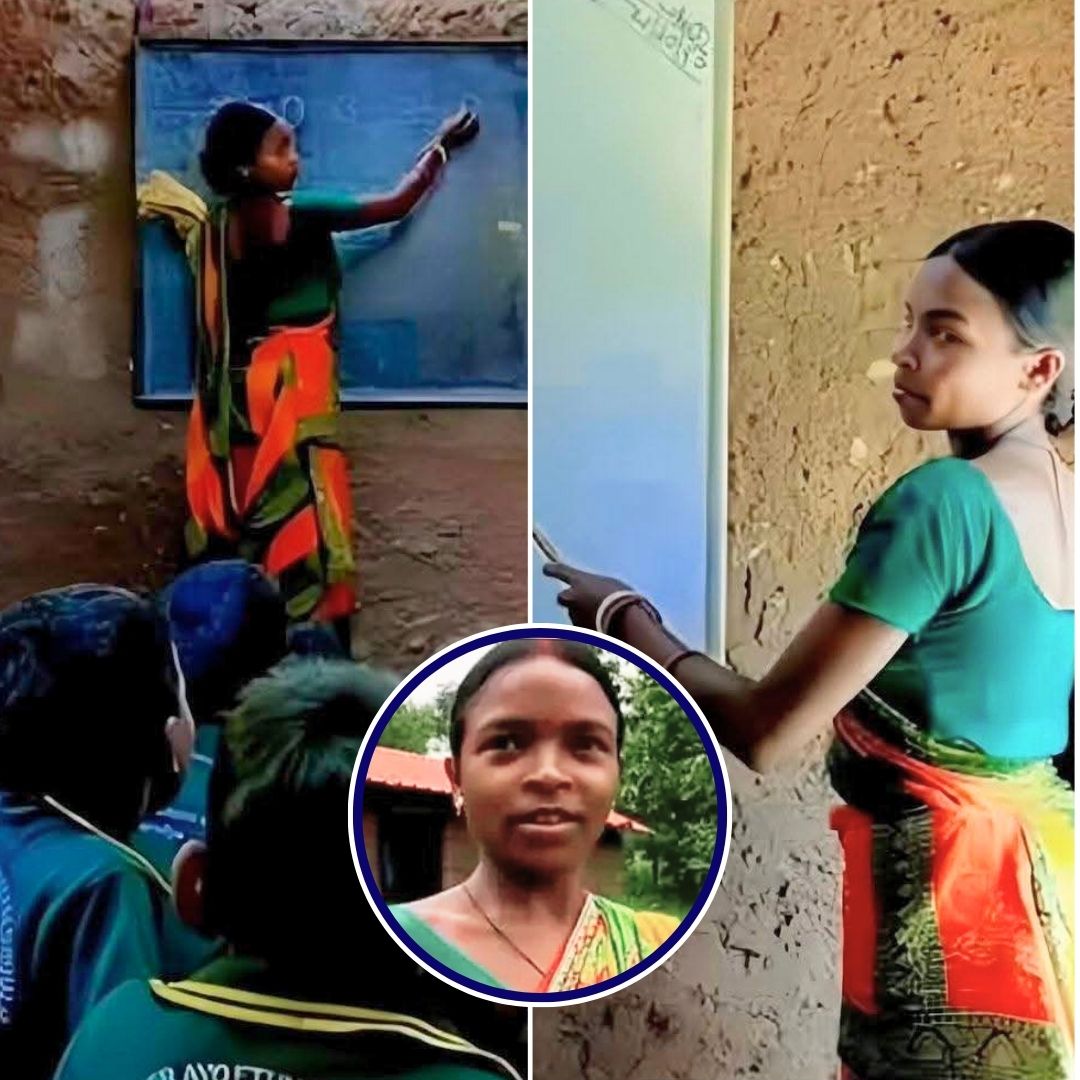Malati Murmu, a tribal woman from the remote village of Jilingseling in Purulia, West Bengal, has converted her mud house into a free classroom for over 45 tribal children, teaching primarily in their mother tongue, Santali, without any funding or salary.
Starting in 2020 with a small mud hut, her initiative now operates from a clay classroom with a tin roof, supported by local villagers but lacking modern educational resources. Educators and officials have lauded her dedication as a shining example of grassroots education in tribal areas, highlighting the urgent need for accessible, culturally relevant schooling in underserved communities.
A Classroom Rooted in Tribal Language and Culture
Malati’s school offers lessons from grades one to four, primarily in Santali using the Ol Chiki script, alongside Bengali and English. This approach has significantly increased children’s enthusiasm for learning, with many now eager to read and write in their native language. Villagers, including mothers like Sumita Mandi, praise Malati’s ability to teach in a way that resonates deeply with the children.
Despite the existence of a government primary school nearby, many families prefer Malati’s classes for their personalised attention and culturally sensitive pedagogy. Her husband, Banka Murmu, supports her fully, though they both lament the lack of modern teaching aids such as computers, which could enhance learning further.
From Humble Beginnings to a Beacon of Hope
Malati’s journey began after her marriage in 2020 when she noticed the poor educational conditions in her in-laws’ village. Motivated to act, she started teaching children in a small mud hut, which later evolved into a more permanent clay structure with community help.
Her efforts come at a time when tribal education in Jangalmahal faces challenges including inadequate infrastructure and teacher shortages. Experts like Professor Shripati Tudu from Sidho Kanho Birsha University have praised Malati’s initiative as a model for tribal and rural education across India, emphasizing the critical role of women-led grassroots movements in bridging educational gaps.
The Logical Indian’s Perspective
Malati Murmu’s story is a powerful testament to the transformative potential of empathy, courage, and community spirit in addressing systemic educational inequities.
At The Logical Indian, we believe her example underscores the importance of nurturing indigenous languages and culturally relevant education to empower marginalized communities. While government and civil society must enhance support for such initiatives, individual commitment remains vital.
मालती मुर्मू — पुरुलिया की एक आदिवासी महिला, जिन्होंने अपने साधारण मिट्टी के घर को 45 से अधिक गाँवों के बच्चों के लिए एक विद्यालय बना दिया।
— Lakhan meena (@LakhanmeenaIND) July 10, 2025
बिना किसी सरकारी सहायता या वेतन के, केवल शिक्षा के प्रति अटूट समर्पण, साहस और करुणा के बल पर उन्होंने यह अनूठा कार्य किया।
ऐसी… pic.twitter.com/MQTHQxxXQY











